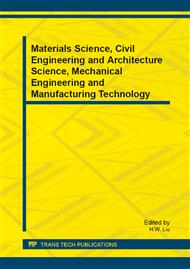p.1314
p.1318
p.1322
p.1326
p.1331
p.1336
p.1340
p.1344
p.1348
Research on Reputation and Risk Evaluation-Trust for Cloud Environment
Abstract:
This paper which starts from the characteristics of human social trust relationship, researches the trust in cloud computing environment. At present, the commercial cloud environment exist two main safe problems: one is the cloud platform trust security problems in their own special environment, the second is the security issues on the network of cheating, false, malicious ads and spam trust security . Aiming at solving this problem, on the basis of the existing trust models, this paper studies the cloud environment trust models according to the characteristics of the cloud environment, constructs a model of trust in the cloud environmentReputation and Risk Evaluation-Trust Model (RRE-Trust), and improves the trust evaluation algorithm. Finally, the experiment results show that, compared with the existing trust models, the proposed evaluate method of this model is closer to the real service behavior of service providers, resist effectively all kinds of malicious behaviors, shows a good robustness and ability in recognize.
Info:
Periodical:
Pages:
1331-1335
Citation:
Online since:
January 2014
Authors:
Keywords:
Price:
Сopyright:
© 2014 Trans Tech Publications Ltd. All Rights Reserved
Share:
Citation:


